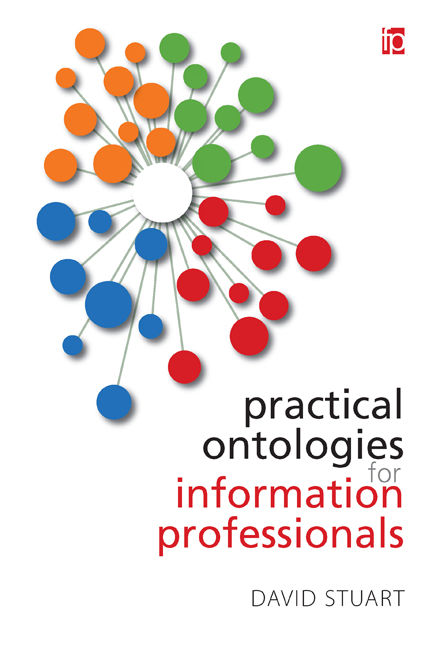Summary
Introduction
Today more data and information are being produced and shared than ever before; data is streaming forth from new online social behaviours as well as high-specification digital tools and instruments. If we are to extract the maximum value from this data then we need to make use of the most appropriate tools and technologies. Ontologies, formal representations of knowledge with rich semantic relationships, are one such tool, and the focus of this book.
This chapter provides an introduction to ontologies, and considers their increasing importance to information professionals. Following a brief overview of the growing information overload and data deluge, the chapter considers the various definitions that have been applied to the term ‘ontology’ and how ontologies differ from associated and overlapping information concepts such as controlled vocabularies, taxonomies, metadata and knowledge bases. Finally, the chapter considers the potential of ontologies for information retrieval and discovering ‘undiscovered public knowledge’, and the role of the librarian in the development, maintenance and curation of ontologies.
The data deluge and information overload
It is important to start with an understanding of the changing information landscape, reminding ourselves of why we need new tools and technologies, and why it is no longer acceptable to continue with the way things have always been done. We are awash with a wide variety of information and data, but due to the tools that we are currently using the value of much of the data is going to waste. As John Naisbitt (1984, 17) put it, ‘We are drowning in information, but starved for knowledge’.
Information is coming from a wide variety of sources. There has been an explosion in the publishing and sharing of text across the whole of the communication spectrum, from the informal to the formal. Traditional formal publications, such as books and journals, have been joined by e-books and e-journals, with new publishing models based on combinations of self-publishing and open access: the number of self-published titles published in the USA rose from 85,468 titles in 2008 to 458,564 titles in 2013 (Bowker, 2014); whilst Chen (2014) estimated that the proportion of articles published in the previous year available as open access had either passed or was very close to 50%.
Information
- Type
- Chapter
- Information
- Practical Ontologies for Information Professionals , pp. 1 - 26Publisher: FacetPrint publication year: 2016
